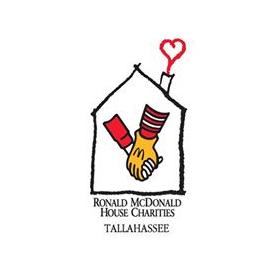
More than anything charities are eager to get back to serving the people in the Tallahassee community. Following the spread of the COVID-19 virus, charities across the nation have been negatively impacted, most notably by a lack of funding and the inability to provide aid to those in need.
“We have not been able to take any families in, which has been so hard and stressful. Not on just us but the families of course,” Kim Curren said.
Curren is house operations and volunteer manager for the Ronald McDonald House Charities of Tallahassee. Also known as “the house that love built,” the organization provides a safe place for families with children who are hospitalized and receiving medical treatments. Families can rest, heal, focus on the needs of their child, and receive support from others facing similarconcerns.
While being associated with a Fortune 500 company, the non-profit organization is not as well-funded as may would believe. With almost 400 homes purchased worldwide, each is offered only three percent of its total operating cost from the McDonald’s corporation,and the rest of the budget comes from fundraising and donations.
According to the Charities Aid Foundation of America nearly 68 percent of organizations reported a decrease in funding and difficulties reaching donors. Organizations were forced to move to remote working conditions with the suspension of some client-facing programs. Difficulties in adapting to the current conditions include the lack of infrastructure and access to allow employees and volunteers to work remotely.
Kim Galbán-Countryman is CEO of the Lighthouse of the Big Bend, which specializes in serving the blind and visually impaired community in Leon County and its neighboring counties. In a world that is becoming more virtual, this organization seeks to help clients with vision impairments stay engaged in life independently and safely. Now that most employees are working from home, many have had difficulties adapting to the decreased amount of face to face interactions with their clients.
“The biggest problem we’ve had is, people don’t just go in this industry to sit behind a desk and talk to people virtually,” Countryman said. “They go in because they like human beings and want that human connection. That’s been very hard on my specialists… they want to be in their homes and see what they’re doing.”
Many non-profit organizations rely on human connections to get the job done and provide aid to their community. Now, organizations must think of new and creative ways to compensate for jobs that once required face-to face interaction. The long-term effect of the virus can potentially cause charities to change the way they connect with their clients.